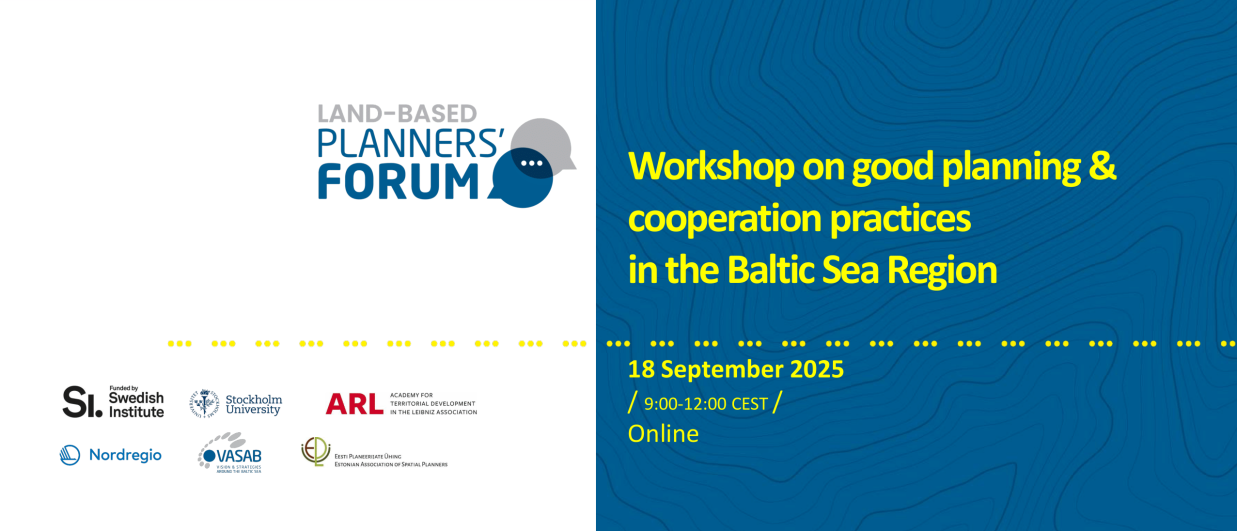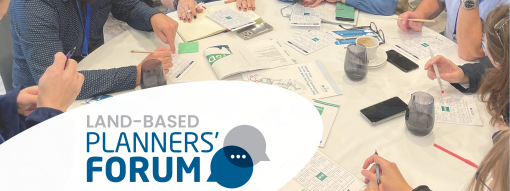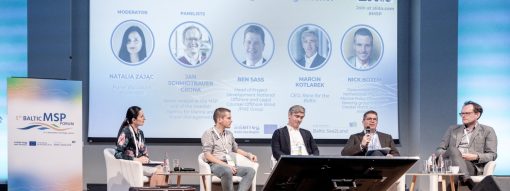Register for Land-based Planners’ Forum workshop
Register now for the online workshop on good planning & cooperation practices in the Baltic Sea Region – 18 September, 9:00–12:00 CEST.
The workshop will focus on sharing inspirations and creating space for discussion. The Agenda is available here, and Registration is available here.
What kind of cross-country cooperation can best support spatial planners in the Baltic Sea Region? The Land-Based Planners’ Forum project is exploring this question right now.
Based on an in-depth comparison of national planning systems and a targeted survey of spatial planning professionals, the project is investigating which collaboration mechanisms could effectively support planners working at national, regional, and local levels across borders.
A recent stakeholder survey gathered insights from 96 respondents from Finland, Estonia, Latvia, Lithuania, Poland, Germany, and Sweden. The findings highlight strong interest in:
- Regional-level and local/municipal-level networks
- Sharing knowledge on climate change adaptation, shrinking towns/regions, and better integration of sectoral policies
- Tools such as land-use planning models, GIS, public participation methods, scenario tools, and visualization techniques
These inputs, along with other insights, will guide a feasibility study for a Land-Based Planners’ Forum—a new space for connection, exchange, and collaboration among spatial planners in the Baltic Sea Region.
The workshop is intended for land-based spatial planners working in local, regional, or national public authorities across the Baltic Sea Region, as well as for existing cooperation networks focused on spatial planning issues. During the workshop, we will present key findings, explore potential forum formats, and—most importantly—hear your perspectives and ideas.
Be part of shaping a new collaboration platform for planners. Register now to secure your place and contribute to co-creating the Land-Based Planners’ Forum.
Read more about the project here.
Project is financed with the contribution of the Swedish Institute.



